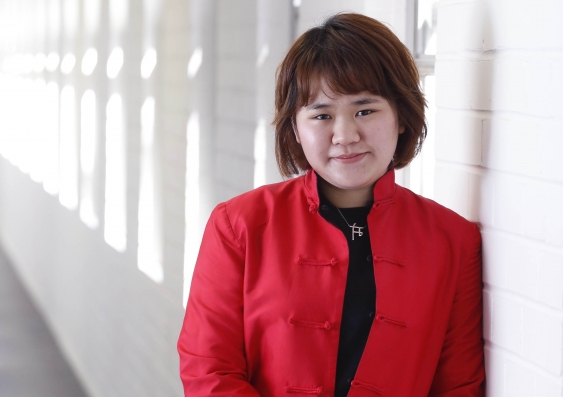BackStory: Dr Pichamon Yeophantong
The 26-year-old lecturer in International Relations and Development talks about starting university at 13 and why age shouldn’t dictate capability.
The 26-year-old lecturer in International Relations and Development talks about starting university at 13 and why age shouldn’t dictate capability.

I was home-schooled from the age of 10 when my family returned to Thailand after living in Singapore, Fiji, and New Zealand. It was a leap of faith on my mother, Panadda’s, part. In Thai society at the time it was considered extremely revolutionary or even slightly mad, to home-school your child. It was only possible because of the collective effort of Mum and my older siblings. They taught me everything from biology and Marxism to history and French.
I’ve always had nerd tendencies. I could read a book in a day from a young age, but I don’t recall there being a particular moment when anyone decided I was academically gifted. It was when I was about 11 that Mum thought I needed structure and to experience a live exam situation, so I sat the Cambridge IGCSE exams.
Mum wasn’t a tiger parent she was very relaxed and cool. My family were surprised I passed the IGCSE. They had no expectations. I put all the pressure on myself, it was purely self-inflicted. I was 13 years old when I was accepted into a Bachelor of Arts majoring in British and American Studies at Thammasat University, Bangkok. An hour before the panel interview the heel of my shoe broke … I can still feel the adrenaline when I think about it. The first question they asked was would my age impact on my ability to perform well? I told them, “I respect your concerns but I don’t think age should determine a person’s capabilities”.
Mum and my older siblings taught me everything from biology and Marxism to history and French.
I was 17 when I started my Masters in International Relations at ANU. Mum had to come and live with me because I needed a legal guardian. I was incredibly fortunate to meet people who understood my circumstances.
I was selected as an Oxford-Princeton Global Leaders Fellow after I’d completed my PhD at ANU. I spent a year at each university. At Oxford you can literally feel the weight of history. Princeton has a distinctive charm that’s hard to describe. I couldn’t believe I was living in the same town that had been home to Albert Einstein and John Nash.
Coming to UNSW felt right to me. I’ve been exposed to different systems in the UK, the US and Asia and I know they each have strengths and weaknesses. UNSW is relatively young and very dynamic. I like the Aussie way of doing things. Australia feels like a second home to me now.
I’m a huge procrastinator so I try not to give myself any down time. I play the piano and prefer to play by ear. I play some classical, a bit of jazz and a lot of contemporary show tunes. I like listening to J-pop and Mandopop when I’m working. I also love PlayStation: I’m a Final Fantasy fan.
My research focuses on Chinese foreign policy and the environment: climate change, resource security, natural disasters and trans-boundary water governance. I’m particularly interested in how normative ideas like “responsibility” and “legitimacy” feature in China’s engagement with global governance. I’m not a “panda hugger” but I think we are seeing China becoming more responsive to global expectations and (to quote Uncle Ben in Spider-Man), recognising that “with great power comes great responsibility”.